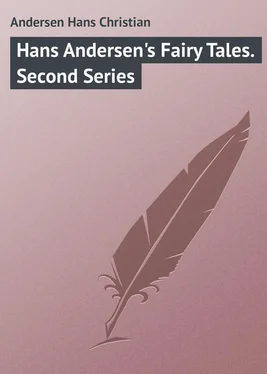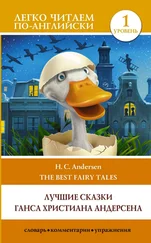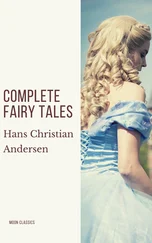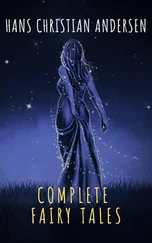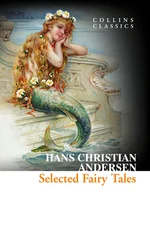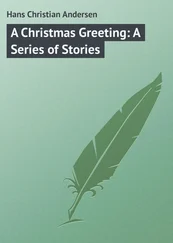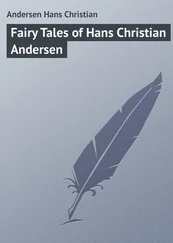Andersen Hans - Hans Andersen's Fairy Tales. Second Series
Здесь есть возможность читать онлайн «Andersen Hans - Hans Andersen's Fairy Tales. Second Series» — ознакомительный отрывок электронной книги совершенно бесплатно, а после прочтения отрывка купить полную версию. В некоторых случаях можно слушать аудио, скачать через торрент в формате fb2 и присутствует краткое содержание. Издательство: Иностранный паблик, Жанр: foreign_prose, на английском языке. Описание произведения, (предисловие) а так же отзывы посетителей доступны на портале библиотеки ЛибКат.
- Название:Hans Andersen's Fairy Tales. Second Series
- Автор:
- Издательство:Иностранный паблик
- Жанр:
- Год:неизвестен
- ISBN:нет данных
- Рейтинг книги:3 / 5. Голосов: 1
-
Избранное:Добавить в избранное
- Отзывы:
-
Ваша оценка:
- 60
- 1
- 2
- 3
- 4
- 5
Hans Andersen's Fairy Tales. Second Series: краткое содержание, описание и аннотация
Предлагаем к чтению аннотацию, описание, краткое содержание или предисловие (зависит от того, что написал сам автор книги «Hans Andersen's Fairy Tales. Second Series»). Если вы не нашли необходимую информацию о книге — напишите в комментариях, мы постараемся отыскать её.
Hans Andersen's Fairy Tales. Second Series — читать онлайн ознакомительный отрывок
Ниже представлен текст книги, разбитый по страницам. Система сохранения места последней прочитанной страницы, позволяет с удобством читать онлайн бесплатно книгу «Hans Andersen's Fairy Tales. Second Series», без необходимости каждый раз заново искать на чём Вы остановились. Поставьте закладку, и сможете в любой момент перейти на страницу, на которой закончили чтение.
Интервал:
Закладка:
Then it appeared to it that new life was thrilling through every fiber of root and stem and leaf, rising even to its highest branches. The tree felt itself stretching and spreading out, while through the root beneath the earth ran the warm vigor of life. As it grew higher and still higher and its strength increased, the topmost boughs became broader and fuller; and in proportion to its growth its self-satisfaction increased, and there came a joyous longing to grow higher and higher – to reach even to the warm, bright sun itself.
Already had its topmost branches pierced the clouds, which floated beneath them like troops of birds of passage or large white swans; every leaf seemed gifted with sight, as if it possessed eyes to see. The stars became visible in broad daylight, large and sparkling, like clear and gentle eyes. They brought to the tree's memory the light that it had seen in the eyes of a child and in the eyes of lovers who had once met beneath the branches of the old oak.
These were wonderful and happy moments for the old oak, full of peace and joy; and yet amidst all this happiness, the tree felt a yearning desire that all the other trees, bushes, herbs, and flowers beneath it might also be able to rise higher, to see all this splendor and experience the same happiness. The grand, majestic oak could not be quite happy in its enjoyment until all the rest, both great and small, could share it. And this feeling of yearning trembled through every branch, through every leaf, as warmly and fervently as through a human heart.
The summit of the tree waved to and fro and bent downwards, as if in its silent longing it sought something. Then there came to it the fragrance of thyme and the more powerful scent of honeysuckle and violets, and the tree fancied it heard the note of the cuckoo.
At length its longing was satisfied. Up through the clouds came the green summits of the forest trees, and the oak watched them rising higher and higher. Bush and herb shot upward, and some even tore themselves up by the roots to rise more quickly. The quickest of all was the birch tree. Like a lightning flash the slender stem shot upwards in a zigzag line, the branches spreading round it like green gauze and banners. Every native of the wood, even to the brown and feathery rushes, grew with the rest, while the birds ascended with the melody of song. On a blade of grass that fluttered in the air like a long green ribbon sat a grasshopper cleaning its wings with its legs. May beetles hummed, bees murmured, birds sang – each in its own way; the air was filled with the sounds of song and gladness.
"But where is the little blue flower that grows by the water, and the purple bellflower, and the daisy?" asked the oak. "I want them all."
"Here we are; here we are," came the reply in words and in song.
"But the beautiful thyme of last summer, where is that? And where are the lilies of the valley which last year covered the earth with their bloom, and the wild apple tree with its fragrant blossoms, and all the glory of the wood, which has flourished year after year? And where is even what may have but just been born?"
"We are here; we are here," sounded voices high up in the air, as if they had flown there beforehand.
"Why, this is beautiful, too beautiful to be believed," cried the oak in a joyful tone. "I have them all here, both great and small; not one has been forgotten. Can such happiness be imagined? It seems almost impossible."
"In heaven with the Eternal God it can be imagined, for all things are possible," sounded the reply through the air.
And the old tree, as it still grew upwards and onwards, felt that its roots were loosening themselves from the earth.
"It is right so; it is best," said the tree. "No fetters hold me now. I can fly up to the very highest point in light and glory. And all I love are with me, both small and great. All – all are here."
Such was the dream of the old oak at the holy Christmas time. And while it dreamed, a mighty storm came rushing over land and sea. The sea rolled in great billows toward the shore. A cracking and crushing was heard in the tree. Its roots were torn from the ground, just at the moment when in its dream it was being loosened from the earth. It fell; its three hundred and sixty-five years were ended like the single day of the Ephemera.
On the morning of Christmas Day, when the sun rose, the storm had ceased. From all the churches sounded the festive bells, and from every hearth, even of the smallest hut, rose the smoke into the blue sky, like the smoke from the festive thank-offerings on the Druids' altars. The sea gradually became calm, and on board a great ship that had withstood the tempest during the night, all the flags were displayed as a token of joy and festivity.
"The tree is down! the old oak – our landmark on the coast!" exclaimed the sailors. "It must have fallen in the storm of last night. Who can replace it? Alas! no one." This was the old tree's funeral oration, brief but well said.
There it lay stretched on the snow-covered shore, and over it sounded the notes of a song from the ship – a song of Christmas joy, of the redemption of the soul of man, and of eternal life through Christ.
Sing aloud on this happy morn,
All is fulfilled, for Christ is born;
With songs of joy let us loudly sing,
"Hallelujahs to Christ our King."
Thus sounded the Christmas carol, and every one on board the ship felt his thoughts elevated through the song and the prayer, even as the old tree had felt lifted up in its last beautiful dream on that Christmas morn.
THE PORTUGUESE DUCK
A DUCK once arrived from Portugal. There were some who said she came from Spain, but that is almost the same thing. At all events, she was called the Portuguese duck, and she laid eggs, was killed and cooked, and that was the end of her.
The ducklings which crept forth from her eggs were also called Portuguese ducks, and about that there may be some question. But of all the family only one remained in the duck yard, which may be called a farmyard, since the chickens were admitted to it and the cock strutted about in a very hostile manner.
"He annoys me with his loud crowing," said the Portuguese duck, "but still, he's a handsome bird, there's no denying that, even if he is not a duck. He ought to moderate his voice, like those little birds who are singing in the lime trees over there in our neighbor's garden – but that is an art only acquired in polite society. How sweetly they sing there; it is quite a pleasure to listen to them! I call it Portuguese singing. If I only had such a little singing bird, I'd be as kind and good to him as a mother, for it's in my Portuguese nature."
While she was speaking, one of the little singing birds came tumbling head over heels from the roof into the yard. The cat was after him, but he had escaped from her with a broken wing and so came fluttering into the yard. "That's just like the cat; she's a villain," said the Portuguese duck. "I remember her ways when I had children of my own. How can such a creature be allowed to live and wander about upon the roofs? I don't think they allow such things in Portugal."
She pitied the little singing bird, and so did all the other ducks, who were not Portuguese.
"Poor little creature!" they said, one after another, as they came up. "We can't sing, certainly; but we have a sounding board, or something of the kind, within us, though we don't talk about it."
"But I can talk," said the Portuguese duck. "I'll do something for the little fellow; it's my duty." So she stepped into the watering trough and beat her wings upon the water so strongly that the little bird was nearly drowned. But the duck meant it kindly. "That is a good deed," she said; "I hope the others will take example from it."
Читать дальшеИнтервал:
Закладка:
Похожие книги на «Hans Andersen's Fairy Tales. Second Series»
Представляем Вашему вниманию похожие книги на «Hans Andersen's Fairy Tales. Second Series» списком для выбора. Мы отобрали схожую по названию и смыслу литературу в надежде предоставить читателям больше вариантов отыскать новые, интересные, ещё непрочитанные произведения.
Обсуждение, отзывы о книге «Hans Andersen's Fairy Tales. Second Series» и просто собственные мнения читателей. Оставьте ваши комментарии, напишите, что Вы думаете о произведении, его смысле или главных героях. Укажите что конкретно понравилось, а что нет, и почему Вы так считаете.
